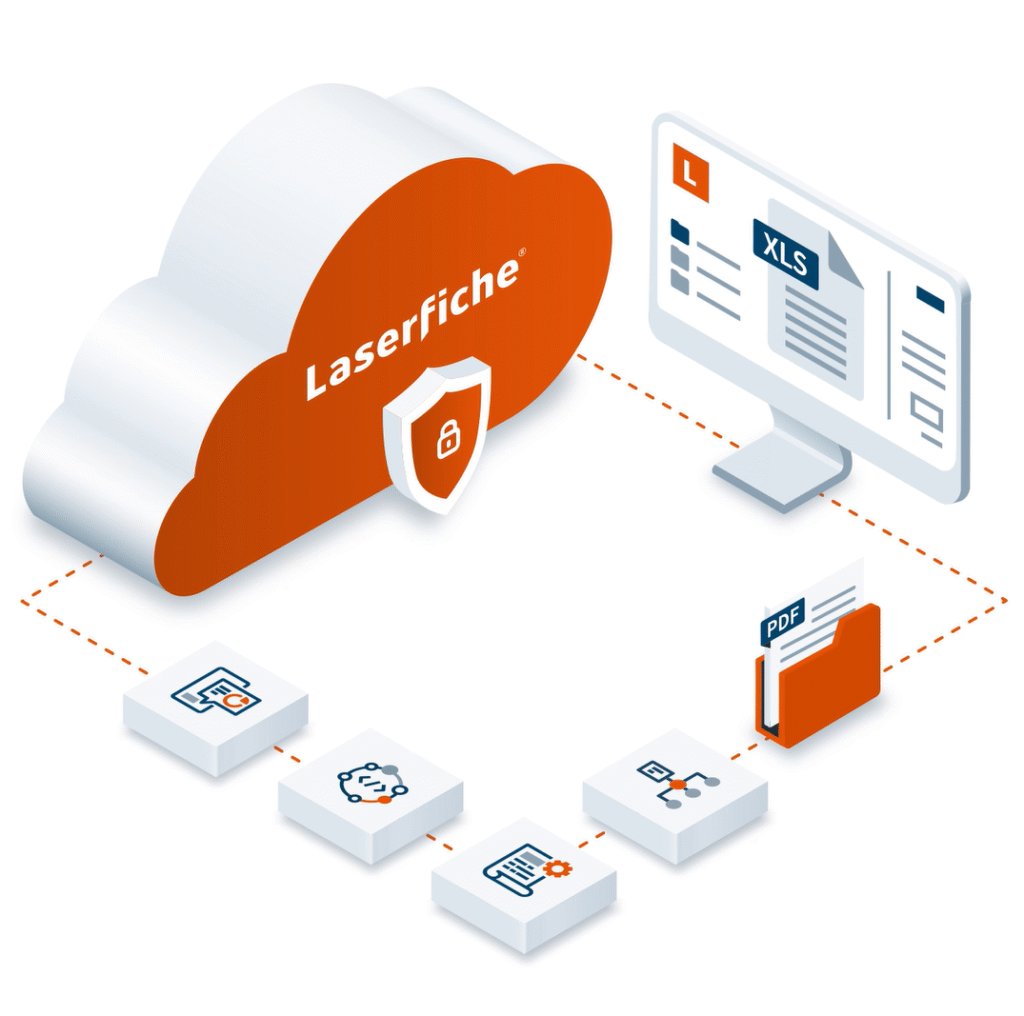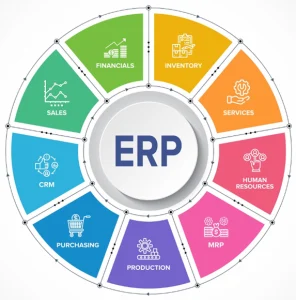The need for effective and efficient distribution strategies is driving a shift away from traditional channels, which can lead to poor customer experience. By incorporating the latest VAN (Value-Added Network) sales technology, businesses can now better manage their sales routes and receive numerous benefits beyond traditional route planning. This paper explores the latest advancements in VAN sales technology, highlighting its benefits such as optimizing route effectiveness, decreasing operational expenses, and driving business growth.
Many aspects of business have been revolutionized by the introduction of technology, and in particular are those related to the sales sector. Sales and distribution are utilizing VAN (Value-Added Network) sales technology, which is one of the most significant advancements in this area. This advanced technology enhances the planning of routes, optimizes delivery times, and ensures that resources are allocated efficiently. VAN sales technology has become a crucial aspect of the business landscape as it competes with customers for time and resources without compromising on profitability. This paper offers an in-depth exploration of how this technology enhances route effectiveness and the many benefits it can bring to salespeople and businesses.
Understanding VAN Sales Technology
VAN sales technology integrates advanced software and communication networks to facilitate seamless data exchange between different entities in the sales and distribution process. By leveraging real-time data, companies can make informed decisions regarding route planning and execution. This technology encompasses various tools and features, including GPS tracking, route optimization algorithms, and real-time analytics, which collectively enhance the efficiency and effectiveness of sales routes.
The foundation of VAN sales technology lies in its ability to connect multiple data points and streamline communications across the sales network. By implementing this technology, businesses can synchronize their sales operations, ensuring that data from various sources is consolidated and readily available for decision-making. This holistic approach to data management not only improves route planning but also ensures that sales teams can respond dynamically to changing circumstances. For instance, if a delivery is delayed due to unforeseen traffic, the system can automatically reroute the driver, minimizing delays and ensuring that customers receive their products on time. Additionally, by maintaining a comprehensive log of all transactions and routes, businesses can perform detailed analyses to identify bottlenecks and areas for improvement, thus continuously refining their operations.
Real-Time Data and Analytics
One of the primary advantages of VAN sales technology is its ability to provide real-time data and analytics. Sales teams can access up-to-date information about traffic conditions, delivery statuses, and customer preferences. This real-time data enables them to make swift adjustments to their routes, ensuring timely deliveries and improved customer satisfaction. Additionally, analytics tools help identify patterns and trends, allowing businesses to optimize their routes further.
Real-time data and analytics are transformative for sales operations. By continuously receiving updates on traffic conditions, vehicle locations, and delivery statuses, sales teams can adjust their strategies on the fly. For example, if a sudden traffic jam is detected, the system can suggest alternative routes to avoid delays. Moreover, real-time analytics allow for the collection and examination of data related to delivery times, customer feedback, and route efficiency. This wealth of information can be analyzed to uncover patterns and trends that might not be immediately obvious, such as identifying consistently problematic areas or peak traffic times. By understanding these trends, businesses can proactively adjust their logistics strategies, ensuring more efficient and reliable delivery processes.
This proactive approach not only enhances operational efficiency but also significantly boosts customer satisfaction by providing more reliable service.
GPS Tracking and Route Optimization
GPS tracking is a cornerstone of VAN sales technology. It allows sales teams to monitor their vehicles’ locations in real-time, ensuring that they follow the most efficient routes. Route optimization algorithms take into account various factors such as traffic, distance, and delivery windows to suggest the best possible routes. This not only reduces fuel consumption and operational costs but also enhances overall route effectiveness.
The use of GPS tracking in VAN sales technology has revolutionized route management. By continuously tracking the location of each vehicle, businesses can ensure that their sales teams are adhering to the planned routes and making efficient use of their time.
This real-time visibility into vehicle locations allows dispatchers to make informed decisions, such as rerouting vehicles to avoid traffic congestion or adjusting delivery sequences based on changing circumstances. The route optimization algorithms integrated into VAN sales technology are particularly powerful, as they consider a wide array of variables including current traffic conditions, historical traffic patterns, delivery time windows, and even road conditions. By processing this data, the algorithms can generate the most efficient routes, reducing travel time and fuel consumption.
This not only lowers operational costs but also ensures that deliveries are made promptly, enhancing customer satisfaction. Furthermore, the ability to dynamically adjust routes in response to real-time data means that businesses can maintain high levels of service reliability, even in the face of unexpected challenges.
Customer satisfaction is paramount in t
Enhancing Customer Satisfaction
he sales and distribution industry. VAN sales technology plays a pivotal role in meeting customer expectations by ensuring timely and accurate deliveries.
With real-time tracking, customers can receive updates on their delivery status, leading to enhanced transparency and trust. Additionally, the technology allows for better communication between sales teams and customers, further improving the overall customer experience.
In the competitive landscape of sales and distribution, maintaining high levels of customer satisfaction is essential for business success.
VAN sales technology significantly contributes to this by providing tools that enhance the delivery experience. With real-time tracking capabilities, customers can stay informed about the status of their deliveries, receiving notifications about estimated arrival times and any potential delays.
This level of transparency builds trust, as customers feel more in control and confident in the service being provided. Furthermore, the ability for sales teams to communicate directly with customers through the technology ensures that any issues or concerns can be promptly addressed.
For instance, if a customer needs to reschedule a delivery or update their delivery preferences, the sales team can quickly accommodate these changes, ensuring a seamless and personalized service. By enhancing communication and providing reliable delivery information, VAN sales technology helps businesses build stronger, more positive relationships with their customers, leading to increased loyalty and repeat business.
Reducing Operational Costs
Operational efficiency is a key benefit of adopting VAN sales technology. By optimizing routes and reducing unnecessary travel, businesses can significantly cut down on fuel costs and vehicle maintenance expenses. Moreover, the technology enables better resource allocation, ensuring that sales teams are utilized effectively.
This reduction in operational costs translates to increased profitability for businesses.
Reducing operational costs is a critical goal for any business, and VAN sales technology offers powerful tools to achieve this. By utilizing route optimization algorithms, businesses can ensure that their sales teams take the most efficient paths, minimizing travel distances and times. This directly translates to lower fuel consumption, which is a significant expense for any company with a fleet of vehicles. Additionally, by avoiding unnecessary travel and reducing the time vehicles spend on the road, businesses can extend the lifespan of their vehicles, reducing maintenance and replacement costs.
VAN sales technology also provides detailed insights into vehicle performance and usage patterns, allowing businesses to schedule maintenance more effectively and prevent costly breakdowns. Beyond vehicle-related savings, the improved efficiency in route planning and execution ensures that sales teams can complete more deliveries or visits within the same timeframe, maximizing productivity and revenue generation. Overall, the cost savings achieved through the use of VAN sales technology contribute to a healthier bottom line and provide businesses with a competitive edge.
Improving Resource Allocation
Efficient resource allocation is crucial for maximizing route effectiveness. VAN sales technology provides insights into the optimal deployment of sales teams and vehicles. By analyzing data on delivery patterns and customer demand, businesses can ensure that their resources are allocated where they are needed most. This leads to better coverage of sales territories and improved overall performance.
Effective resource allocation is a fundamental aspect of operational efficiency, and VAN sales technology excels in this area. By collecting and analyzing comprehensive data on delivery patterns, customer demand, and route performance, businesses can make informed decisions about how to deploy their resources most effectively.
For example, the technology can highlight areas with high demand that may require additional sales representatives or vehicles, ensuring that all regions are adequately covered.
Conversely, it can identify areas with lower demand where resources can be scaled back or redeployed. This dynamic approach to resource allocation ensures that sales teams are always positioned where they can have the greatest impact, improving overall performance and customer satisfaction.
Furthermore, VAN sales technology can help businesses plan for peak periods and special promotions, ensuring that they have the necessary resources in place to handle increased demand. By optimizing the deployment of sales teams and vehicles, businesses can maximize their operational efficiency, reduce costs, and enhance service quality.
Enhancing Sales Team Productivity
Sales team productivity is greatly enhanced through the use of VAN sales technology. The automation of route planning and real-time data access allows sales representatives to focus more on customer interactions and less on logistical challenges.
This results in increased sales opportunities and better customer relationships. Furthermore, the technology facilitates better time management, enabling sales teams to maximize their productivity.
Maximizing the productivity of sales teams is essential for driving revenue and growth. VAN sales technology plays a crucial role in achieving this by automating many of the logistical tasks that can consume a significant amount of time and effort. With automated route planning, sales representatives can focus on their core responsibilitiesengaging with customers and closing sales—rather than spending time on route optimization and scheduling. The availability of real-time data further enhances productivity by providing sales teams with the information they need to make informed decisions quickly.
For example, if a meeting is canceled or a delivery is rescheduled, sales representatives can instantly adjust their plans and redirect their efforts to other opportunities. Additionally, the technology supports better time management by helping sales teams plan their days more effectively, ensuring that they can maximize the number of customer interactions and sales opportunities they can handle. By reducing the time spent on administrative tasks and logistical challenges, VAN sales technology enables sales teams to operate more efficiently and achieve higher levels of productivity.
Facilitating Better Decision-Making
The integration of VAN sales technology provides businesses with a wealth of data that can be used to make informed decisions. From route planning to resource allocation, the technology offers insights that help businesses optimize their operations. The ability to analyze data and identify trends allows for proactive decision-making, ensuring that businesses stay ahead of the competition and adapt to changing market conditions.
In today’s fast-paced business environment, making informed decisions quickly is crucial for maintaining a competitive edge.
VAN sales technology provides businesses with access to a vast amount of data, which can be analyzed to gain valuable insights into various aspects of their operations. For instance, by examining data on delivery times, route efficiency, and customer feedback, businesses can identify trends and patterns that may not be immediately apparent. These insights can inform strategic decisions, such as adjusting delivery schedules to align with peak traffic times or reallocating resources to address areas of high demand.
The ability to analyze and act on data in real-time allows businesses to be proactive rather than reactive, enabling them to anticipate and address issues before they become significant problems. Furthermore, the data provided by VAN sales technology can be used to conduct detailed performance evaluations, identifying areas where improvements can be made and implementing targeted strategies to enhance overall efficiency. By leveraging data-driven decision-making, businesses can optimize their operations, stay ahead of the competition, and adapt to evolving market conditions.
Enhancing Communication and Collaboration
Effective communication and collaboration are essential for the success of sales and distribution operations. VAN sales technology fosters better communication between sales teams, dispatchers, and customers. Real-time updates and shared data platforms ensure that all stakeholders are on the same page, leading to more coordinated efforts and improved outcomes. This enhanced communication also contributes to quicker problem resolution and better customer service.
In the complex and dynamic world of sales and distribution, effective communication and collaboration are vital for ensuring smooth operations and high levels of customer satisfaction. VAN sales technology enhances communication by providing real-time updates and shared data platforms that keep all stakeholders informed and aligned. For example, sales teams, dispatchers, and customers can all access the same real-time information about delivery statuses, route changes, and estimated arrival times.
The technology also facilitates better collaboration by enabling seamless information sharing and coordination. For instance, if a sales representative encounters an issue on the road, they can quickly communicate with the dispatcher to find a solution, ensuring minimal disruption to the delivery schedule. Additionally, the ability to share data and insights across teams enables more coordinated efforts, leading to improved efficiency and outcomes. By fostering better communication and collaboration, VAN sales technology helps businesses provide more reliable and responsive service, enhancing customer satisfaction and driving long-term success.
Future Trends in VAN Sales Technology
The future of VAN sales technology holds exciting possibilities. With advancements in artificial intelligence and machine learning, route optimization algorithms will become even more sophisticated, offering greater precision and efficiency.
Additionally, the integration of IoT (Internet of Things) devices will provide more comprehensive data, further enhancing route planning and execution. Businesses that stay ahead of these trends will be well-positioned to maximize their route effectiveness and achieve sustained growth.
As technology continues to evolve, the future of VAN sales technology promises to bring even greater advancements and opportunities. Artificial intelligence (AI) and machine learning are set to play a significant role in the next generation of route optimization algorithms. These technologies can analyze vast amounts of data from various sources, such as traffic patterns, weather conditions, and delivery histories, to develop highly accurate and efficient routing plans. The continuous learning capabilities of AI mean that these algorithms will become increasingly precise over time, adapting to changing conditions and improving their performance.
Another key trend is the integration of Internet of Things (IoT) devices, which can provide real-time data on vehicle performance, road conditions, and other critical factors. This comprehensive data will enable even more precise and dynamic route planning, ensuring optimal efficiency and reliability.
Furthermore, advancements in communication technologies will enhance the ability of sales teams to stay connected and informed, further improving coordination and decision-making. Businesses that embrace these technological advancements will be well-positioned to maximize their route effectiveness, reduce costs, and achieve sustained growth in an increasingly competitive market.
Summary
The adoption of advanced VAN sales technology represents a significant leap forward for businesses seeking to optimize their sales routes. By leveraging real-time data, GPS tracking, and route optimization algorithms, companies can enhance operational efficiency, reduce costs, and improve customer satisfaction. This technology not only streamlines route planning but also enhances sales team productivity and decision-making processes. As the technology continues to evolve, businesses that embrace these advancements will be better equipped to navigate the complexities of the sales and distribution landscape, ultimately driving growth and success.
By adopting advanced VAN sales technology, businesses can streamline their operations, reduce costs, and improve customer satisfaction. This technology not only enhances route planning but also improves sales team productivity and decision-making processes, ensuring long-term success and growth. As technological advancements continue to shape the industry, companies that stay ahead of the curve by embracing these innovations will be well-positioned to thrive in an increasingly competitive market. By leveraging the full potential of VAN sales technology, businesses can achieve greater efficiency, deliver superior customer service, and drive sustained growth and success.








